The median average salary for all workers (full-time, part-time, male and female) in the UK in 2023 was £29,669 (source: www.avtrinity.com).
The average monthly cost of living for a family of four in UK is £2,268 without rent (source www.kanan.com).
If I’m doing the maths right that leaves you with a disposable income of just over £204 a month – excluding any unplanned, unnecessary or irregular expenditures.
This season 47/70 premier league and EFL clubs will be increasing their cheapest season ticket prices, (data collected by “Research Data United”), with the average price of a premier league season ticket expected to rise by £33. Whilst Nottingham Forest is the worst offender, with season ticket prices anticipated to increase by 15-18%, Arsenal are also a standout, their cheapest deal now being in excess of £1000, equivalent to nearly 5 months worth of the average UK family’s disposable income.
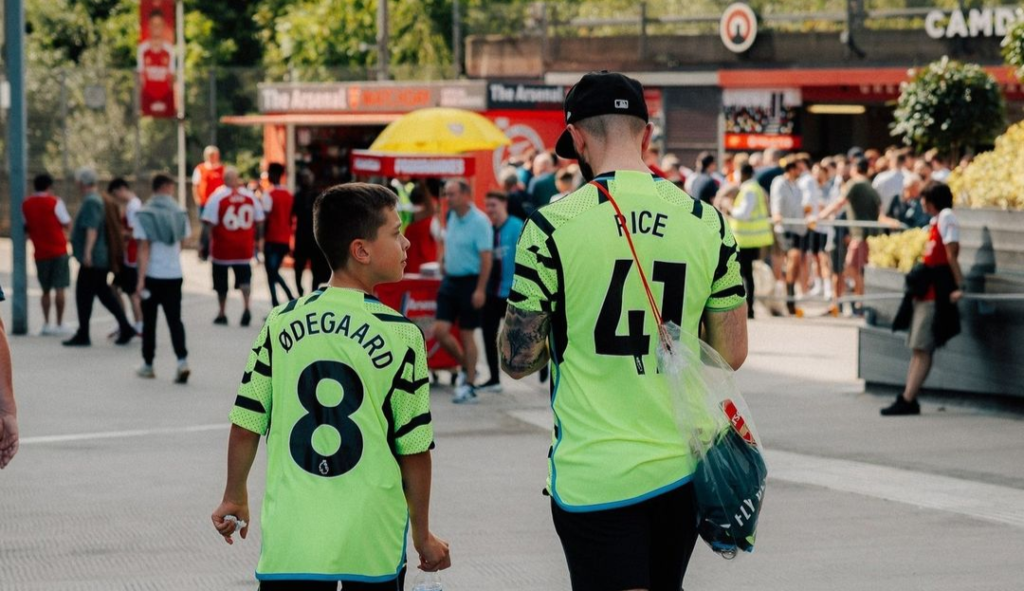
Whilst I am a football fan, I am also human. I know that my time at matches supporting my club means more than it’s weight in gold to me, but it cannot sustain me. When given the choice between spending my money on food for the week or a weekend at St Marys, the choice will have to be food.
So when did the “people’s game” become to close to the opposite?
Well, all you have to do is look at the prices of the “accessible alternative” which is to stream games from home. Research done by the Liberal Democrats in this current election campaign showed that for many football fans the reality of this is finding £870 annually for subscriptions to servers such as Sky Sports, TNT and Amazon Prime Video for Premier League content (or closer to £470 for just the one service) – full breakdown of this inserted directly from their website below. It is so evident that to those in charge this is no longer a sport for the public, but a commercial endeavour.
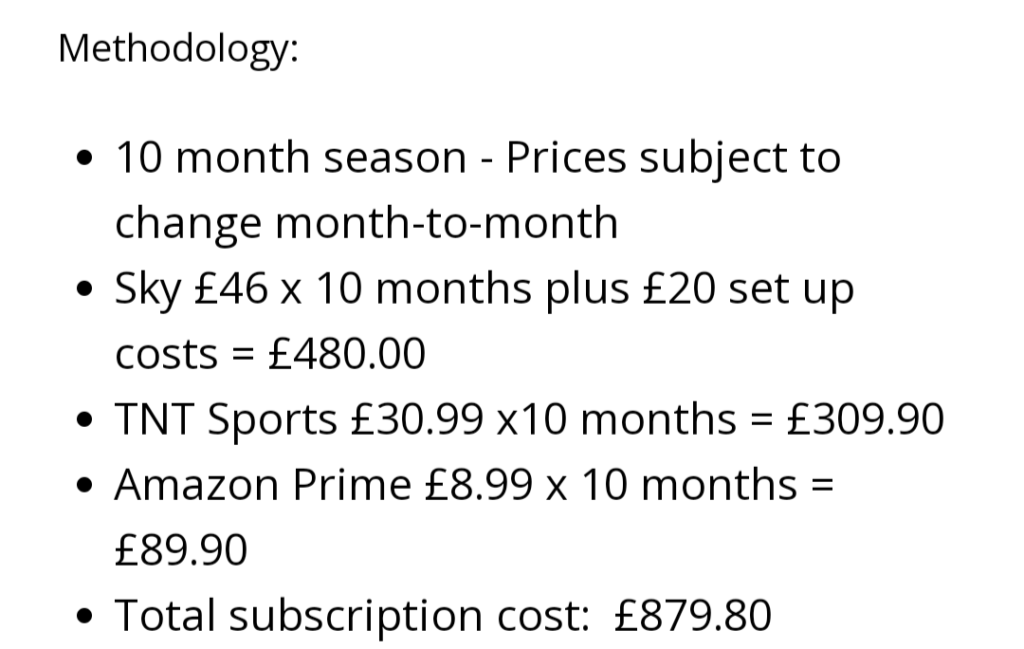
What has the prices of the Prem got anything to do with an election you may ask? Well, party leader Ed Davey has made it part of his manifesto that should the Liberal Democrats be elected into government, they would put Premier League games back on free-to-air channels, as well as 10 games from the Scottish Championship and 20 games from the English Football League. A bold and perhaps unconventional addition to the plan, but one formulated around something any football fan can agree with (regardless of who they will vote for):
Football has been under-protected, and over-commercialised.
What was once an escape for the masses has become a liberty for the wealthy, and eyes that were once focused on fans have been blinded by profit margin and financial gains.
For many loyal fans across the country, this is a truly testing time. All you have to do is open up your local news page to see testimony of a lifelong fan no longer able to access games, a decades long season ticket holder now lucky to go twice a season, and people who would have once died for their club now fallen so far out of love with the game due to its unrecognisable nature. The average price of a season ticket in the Premier League for the 24/25 season will currently cost you £585 – nearly 3 months worth of average disposable income, which when put into that perspective, is insanity.
Something has to give.
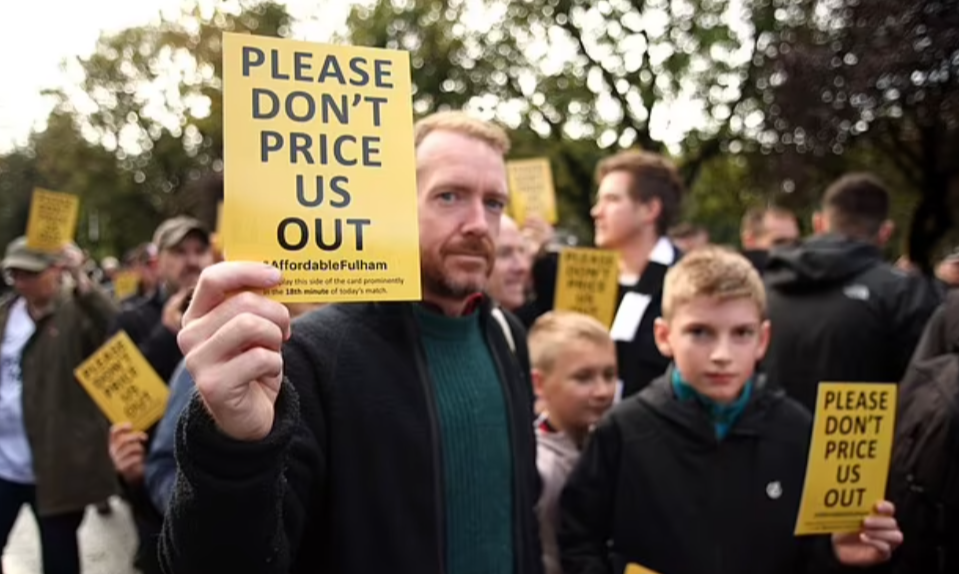
It has been observed that within the next decade we could see a huge shift in the way people engage with football, as more and more bad blood develops between governing bodies and those who truly care for the game. Top flight teams are expected to loose engagement within the country, becoming more of an international affair, whereas lower league sides will reap the rewards of this, gaining fresh and new interest, being a far more sustainable option for those wishing to spend their weekend watching football.
Despite this being a positive for them, is this what we truly want? To be content loosing control of our top flight of football?
For what is theoretically the best league in the world, there are few more corrupt. In football, what happens on the pitch should be what does the talking, not what lines the pockets.
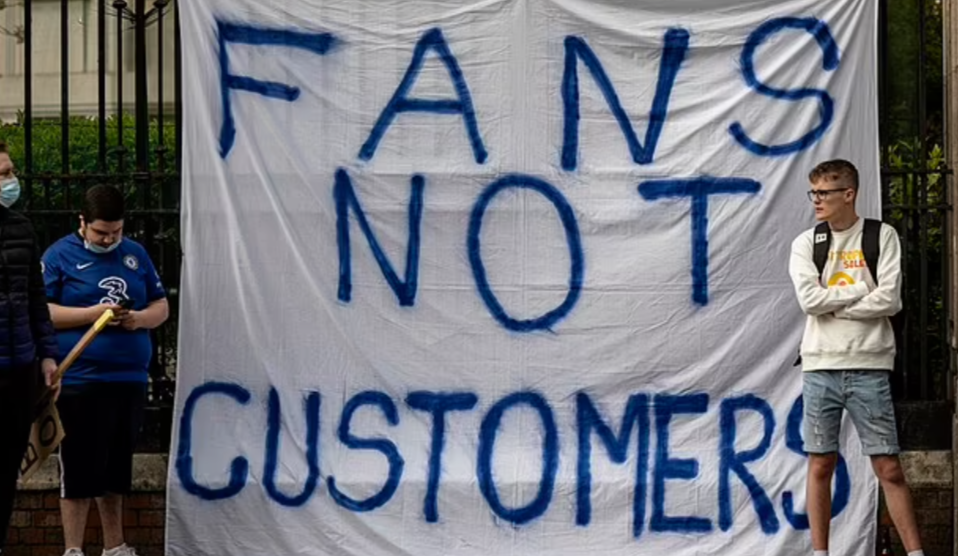
From those who warden the league systems down to club owners, from board members down to players, there has to be an epiphany. There has to be a change that can resurrect this sport and euthanize this commerciality. Will it be an overnight fix? Never. But a project worth investing in? I think so.
Companies, sponsorships and individuals will come and go, but the fans are what remain eternal. The game is nothing without those who show up, so next time you calculate your latest business module, we beg that you take them into regard.
Of course it’s not just season tickets, the discussion of financial fairness within football is one hugely in the spotlight at present. There are many different disputes ongoing; from disparity between clubs to FFP breaches, player wages to the gaps between leagues. Fundamentally there’s a common enemy, and that is the way finance is handled within the sport, so it’s time we stop ignoring it.
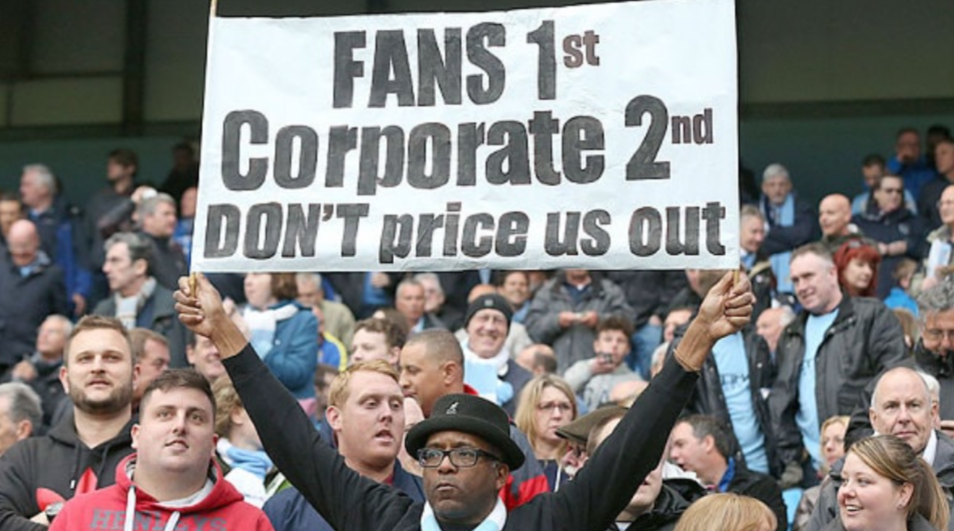
Football as a business enterprise is unavoidable, but football as the people’s enterprise should be valued on par. Fans must speak up and make their opinions accounted for in these discussions, it is not just those who sit in the spinning chairs with the bottled water and a fat pay cheque behind them that should have influence, a voice should also be given to those who sit in the stands on the uncomfortable plastic chairs with the rain pouring, 3-0 down and 4 hours away from home.
Football should be for everyone, everyone should be considered, and it quite simply should never be a debate of Football vs Food.
Poppy Deabill